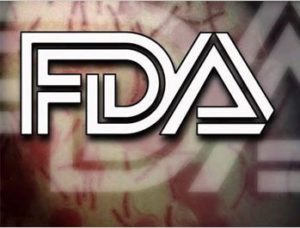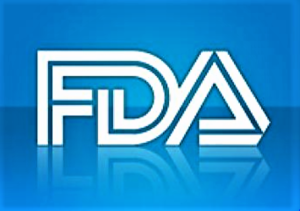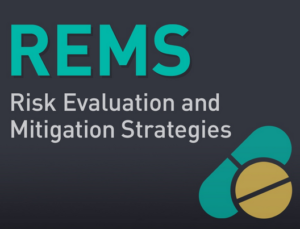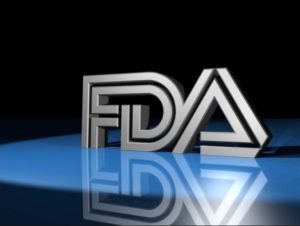- 5 election takeaways for pharma (biopharmadive.com)Health care wins and stocks rally as Democrats take control of the US House (cnbc.com)
Democrats won back the House of Representatives in Tuesday's midterm elections, wresting control from Republicans in an outcome that will shape the next two years of Donald Trump's presidency...In congressional campaigns across the country, healthcare emerged as a key issue, with pre-existing conditions and rising prescription drug costs among the most prominently highlighted...there are several outcomes that look clear for drugmakers. Here are five:
- More scrutiny on drug pricing
- But not necessarily major disruption
- Continued action in the states
- Medicaid expansions to add to insured population
- Business as usual at the FDA
- FDA berates Chinese drugmaker tied to global valsartan recall (fiercepharma.com)
FDA...inspecting the plant of the Chinese API maker after learning its valsartan contained an impurity that is a suspected carcinogen...this was the first visit to list observations that strike at the heart of the manufacturing changes made by Zhejiang Huahai Pharmaceutical that are suspected of producing the impurity that resulted in a global recall of its valsartan...In an 11-observation, highly redacted Form 483 issued posted today, the FDA berated the management for making the process changes without thoroughly testing them...Huahai did not conduct and document a formal risk assessment for the change "to evaluate the potential impact of proposed changes on the quality of the intermediates or the final API for this critical change to your validated manufacturing process..."
- FDA’s continuing use of ‘black box’ for antidepressants ignores the harms of this warning (statnews.com)
The Food and Drug Administration’s “black box” warnings and advisories give important safety information about drugs. But they can sometimes go too far and harm more people than they help...Take the FDA’s highly publicized warnings that taking antidepressants increases the risk of suicidality...among children, adolescents, and young adults. We have evidence, as do many others, that these warnings have decreased youths’ access to mental health care and increased suicide attempts...In October 2004, the FDA required a so-called “black box warning” of this risk to be printed on the labels of all antidepressant drugs. It was implemented in January 2005. Two years later, the FDA extended the same warning to include young adults, again based on industry studies...There’s no question that antidepressants can cause harm if used inappropriately. But the FDA failed to recognize — and still won’t acknowledge — that the harms of its public advisories and black box warning on antidepressants for young people more than outweigh the benefits...
- What the FDA Wants Pharmacists to Know About Generic Drugs (drugtopics.com)
Demand for generics and biosimilars is growing. In 2017, generic drugs generated $265 billion in savings. New biosimilars could play a major role in increasing competition and driving down costs...Drug Topics spoke with officials from the FDA’s Office of Generic Drugs (OGD)and from the Therapeutic Biologics and Biosimilars team (TBB) about how the agency is helping accelerate generics to market, and the role pharmacists play in educating patients about the safety, effectiveness, and quality of generics and biosimilars.
- DT: How is the FDA accelerating generics to market? What are some of the obstacles? What does the generic market look like going forward into 2019 in terms of approvals?
- DT: As more generic drugs enter the market, what role can pharmacists play in educating healthcare providers about using generics? How are pharmacists positioned for this task? How does the FDA disseminate information/reports to the pharmacy community on generic drug development and review?
- DT: What is the status of biosimilars in regard to lowering healthcare costs?
- DT: What do you see as the biggest challenge for the healthcare industry as the new forms of drugs are introduced?
- DT: What else might be important for our readers to consider regarding biosimilars?
- Advancing Toward the Goal of Global Approval for Generic Drugs: FDA Proposes Critical First Steps to Harmonize the Global Scientific and Technical Standards for Generic Drugs (fda.gov)
...FDA launched a Drug Competition Action Plan that focuses on three key areas designed to facilitate more generic competition, promote patient access, and improve the economics of developing generic medicines...While we’ve made substantial progress in fostering more competition by resolving obstacles that can make it difficult to win approval of generic versions of certain complex drugs, increasing the speed of generic approvals, and closing down ways that branded companies game the system to prolong drug monopolies, there’s still more work to be done...So we’re opening up some new policy fronts when it comes to our Drug Competition Action Plan. And we’re re-launching that plan for 2019 with some additional initiatives. Chief among them is a new effort that FDA has proposed to the International Council for Harmonization of Technical Requirements for Pharmaceuticals for Human Use (ICH), a key international body comprised of other regulatory authorities and the pharmaceutical industry: The pursuit of common global development standards for generic drugs...The ultimate goal of this global harmonization of scientific and technical requirements would be the attainment of a single global generic drug development program that can support simultaneous regulatory filings across multiple markets. Harmonization of these requirements is foundational to achieving a future goal of enabling global approval for high quality generic drugs.
- FDA Previews Patient-focused Report on Opioid Use Disorder (raps.org)
The US Food and Drug Administration offered a sneak peek...into a new report on the impact of opioid use disorder (OUD) from the perspectives of about 155 patients...Preliminary results highlighted...offer insights into the impact of OUD on patients’ day-to-day lives to aid industry and FDA staff in the push for patient-focused drug development...The input can serve FDA and others in identifying specific areas of unmet needs for patients with OUD, support advice on medical product development programs and facilitate greater appropriate use of approved medications and how these are evaluated...The results highlight the impacts of OUD, a sensation called “craving,” treatment goals, as well as benefits and downsides of and the current barriers to medication-assisted treatment (MAT)...Benefits to MAT that patients reported include reducing the “euphoric rush,” as well as being able to “arrest the cravings and compulsiveness” and regain control of their life. In contrast, downsides relate to “intolerable or bothersome” side effects and the need to stay on MAT long-term. MAT also reportedly fails to address underlying issues, such as anxiety and pain...On challenges to MAT, participants cited a lack of access due to long wait times to obtain medication and strict requirements to remain in a program, among other issues. They also cited unpleasant experiences at MAT facilities, stigma, the intensity of withdrawals, addressing comorbid pain or mental health needs and a self-recognized need to come to terms with OUD.
- Gottlieb Spells out Vision for FDA Modernization Efforts to Create a new Data Enterprise (raps.org)
As the US Food and Drug Administration continues to navigate a bumpy road toward modernization, a new data enterprise will aim to enhance regulatory decisions on products...The growing number of novel medical products in the US prompted FDA to “refashion” the approaches to drug and device regulations and “create more modern platforms that are better suited to the efficient evaluation of these advances,” said FDA Commissioner Scott Gottlieb...The initiatives already underway...will help “fund the creation of a cross-cutting data enterprise for the generation of evidence, and a more modern and integrated approach to the evaluation of this information,”...Modernization is intended to make regulatory premarket reviews more consistent and predictable to ultimately increase competition among firms and allow for more timely patient access to a greater number of drugs and devices in the US market that are more affordable and of higher quality. This culture shift could also lead to reduced burden and potential cost savings...
- New REMS for Immediate-Release Opioids in Outpatient Settings – Training for Pharmacists and Nurses, Not Just Prescribers (ptcommunity.com)
The FDA has approved a final Opioid Analgesic Risk Evaluation and Mitigation Strategy (REMS) that includes several measures to help better communicate the serious risks about the use of opioid pain medications to patients and health care professionals. This expanded REMS, for the first time...
- ….applies to immediate-release (IR) opioid analgesics intended for use in an outpatient setting. The new REMS also applies to the extended-release and long-acting (ER/LA) opioid analgesics…
- ….training be made available to health care providers who are involved in the management of patients with pain (e.g., nurses and pharmacists), and not only to prescribers.
- ...education cover broader information about appropriate pain management, including alternatives to opioids for the treatment of pain.
- ...new product labeling containing information about the health care provider education available through the new REMS.
- ,,,the agency has approved the new FDA Opioid Analgesic REMS Education Blueprint for Health Care Providers Involved in the Treatment and Monitoring of Patients with Pain (Blueprint). This includes updated educational content.
- The high cost of contamination in drugs manufacturing (pharmaceutical-technology.com)
Pharmaceuticals is one of the highest value industries globally..Any contamination in the drugs manufacturing process can have a substantial financial impact, not to mention possible safety implications...Drug manufacturer Genzyme was forced to temporarily close its Massachusetts plant in 2009, halting production of the Fabrazyme and Cerezyme drugs that were at the time used by 8,000 patients globally, after a virus was found to have contaminated a bioreactor...At the time it was estimated that the incident could cost Genzyme up to $300m in lost revenue...The company was later fined $175m by the US Food and Drug Administration and wrote off more than $28.4m worth of product...
- FDA confronts its limits in push on drug pricing (biopharmadive.com)
Legally, the agency has few levers to pull when it comes to addressing prices. But that hasn't stopped Commissioner Scott Gottlieb from taking a more spirited and vocal approach than past FDA chiefs. The effort comes as eye-popping price tags, some spurred by groundbreaking new treatments but others by manipulation of the drug pricing system, have prompted public and political opposition to rising drug costs...Gottlieb has aggressively used public statements to call out drugmakers for blocking or impeding market competition. And, under his leadership, the FDA has continued to ramp up approval of generic and biosimilar drugs, while pushing the boundaries of regulatory flexibility.
- Indirect effect..."Where the FDA does have authority to get involved is in how much, in what way, and how aggressively it approves drugs, or their generic or biosimilar competitors."...While it's an indirect effect, approving low-cost competitors more quickly can be a powerful force for lowering prices.
- Biosimilars showcase hurdles facing FDA...speeding competitors to market can only go so far if other forces block lower-cost rivals from reaching patients. To date, that's exactly what's played out with biosimilars...Gottlieb has expressed frustration that the FDA's steady increase in approving biosimilars hasn't resulted in greater savings. "Competition is, for the most part, anemic,"
- Naming and shaming...Gottlieb has made full use of his public platform to call out market "shenanigans" by drugmakers...Gottlieb received a lot of media coverage by attacking such practices as "regulatory gaming," and has since kept up pressure on drugmakers through public statements.
- Worth cooperating?...As Health and Human Services Secretary Alex Azar and Gottlieb continue to criticize pricing and anticompetitive practices, drugmakers are faced with a choice: ignore the growing chorus or cooperate.










